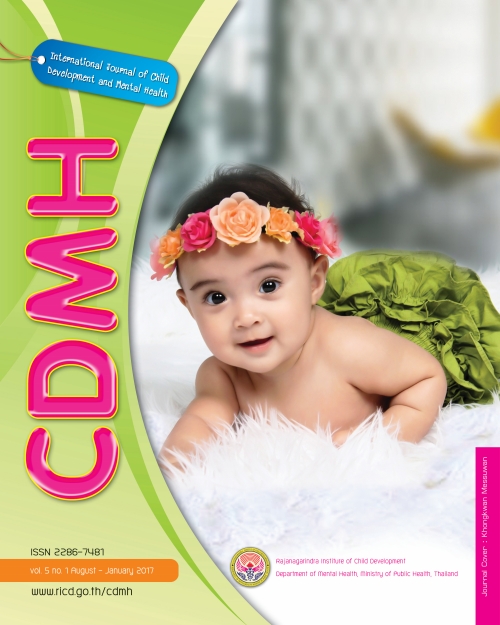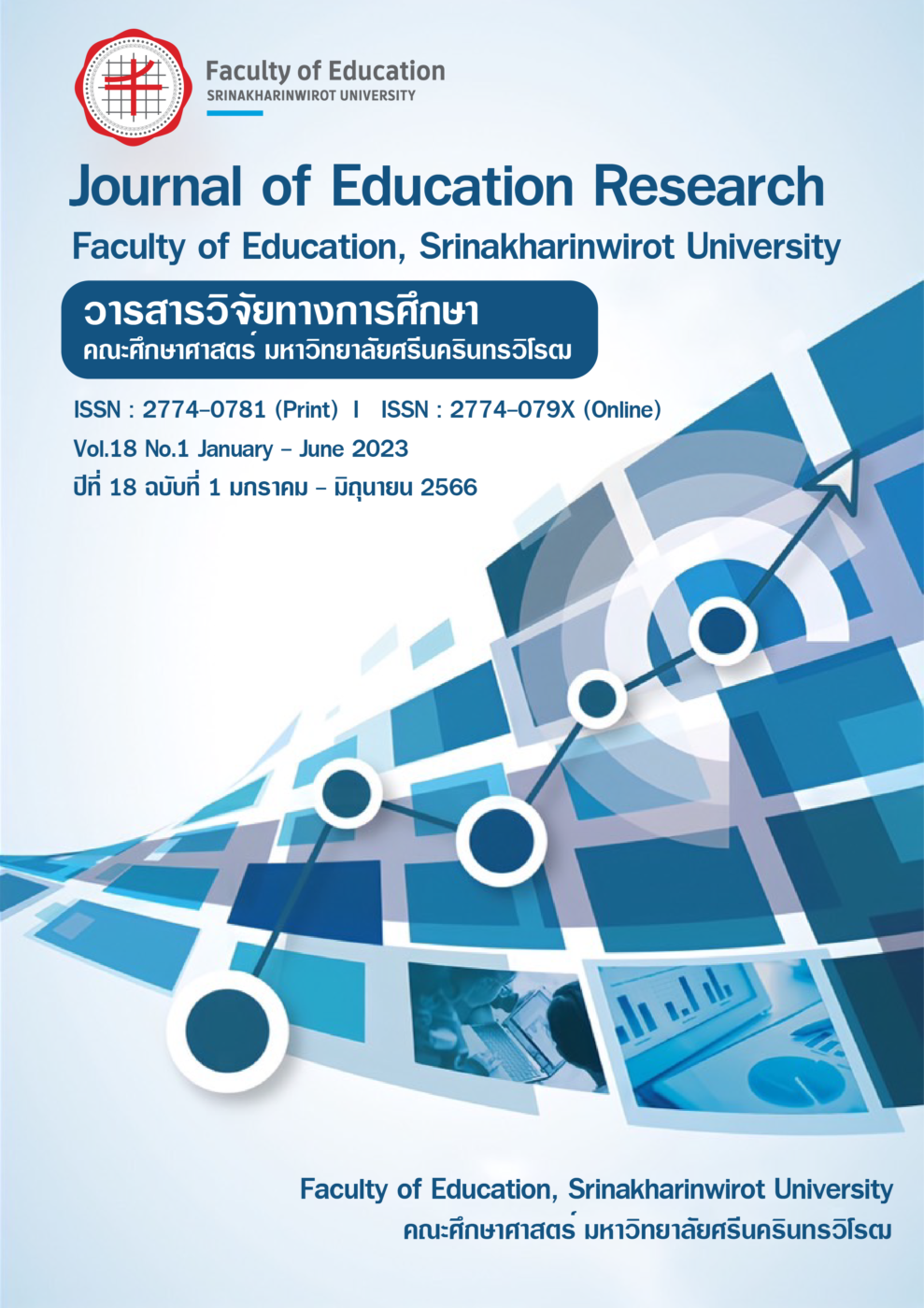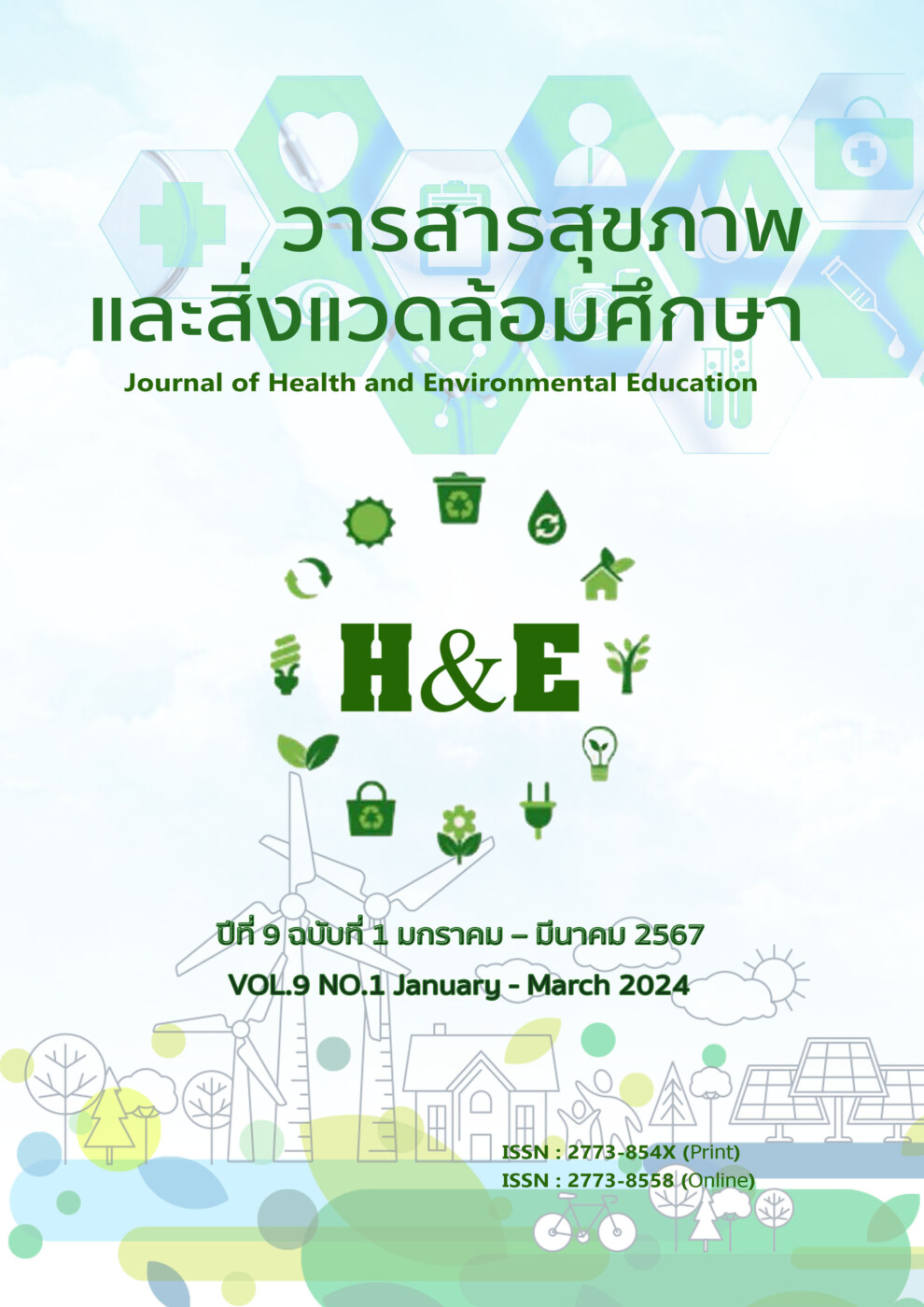Author:
Weerawan Yuwapoom
Banlat Hospital, Phetchaburi Province, Thailand
Kaewta Nopmaneejumruslers
National Institute for Child and Family Development, Mahidol University, Thailand
Athiwat Jiawiwatkul
National Institute for Child and Family Development, Mahidol University, Thailand
Nonthasruang Kleebpung
National Institute for Child and Family Development, Mahidol University, Thailand
Abstract:
In 2014, the early childhood developmental screening program at Banlat Hospital found 120 children with suspected developmental delay. After parents were advised about promoting child development at home, the one month follow up screening showed that the majority were graded as normal, while 13 children (11%) continued to have developmental delay. To help improve these children’s developmental functions, the researcher applied the Holistic approach to child development program, based on the DIR/Floortime concept in the community. This research was a pilot study with one group, pre-post test design. Subjects were 4 children with developmental delay, and 2 children with autism. All parents agreed to spend 10 hours/week interacting with the child. The community model consisted of 1) parent training (1 day) on the Holistic approach to Child Developmental Program, based on the DIR/Floortime concept 2) parent group support (once a month) 3) home visit (once a month) and 4) developmental intervention atthe clinic(once a month). Pre-post test data was collected by using; Questionnaire, Social-emotional Growth Chart (SEGC), Developmental Skills Inventory (DSI) and Parenting Stress Index (PSI), Activities at home record. The study was done over 3 months.
Research findings revealed that all four children with developmental delay showed improvement in both functional emotional development, and receptive and expressive language skills. The two autistic children showed improvement in functional emotional development, but not in developmental skills measured by DSI. All parents were less stressed. The improvement, in SEGC and PSI scores of all 6 children, was statistically significant. This pilot study demonstrated preliminary evidence of positive results in implementing a Holistic Child Development program in the community. The model emphasized parents’ participation in promoting child development at home, and nurse practitioners working alongside parents to support a learning environment.
Method:
study with one group pre-test and post-test design. Data was collected both in terms of quantity and quality
Journal:
International journal of child development and mental health
Year: 2017
Link for more information: https://he01.tci-thaijo.org/index.php/cdmh/article/view/76406




